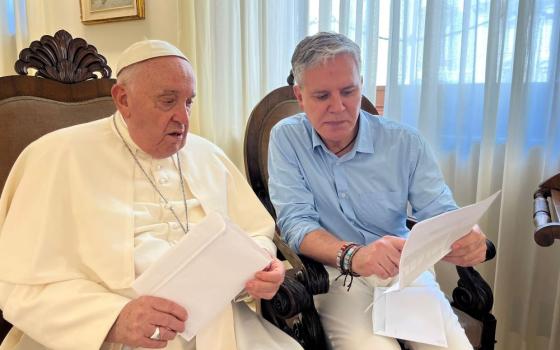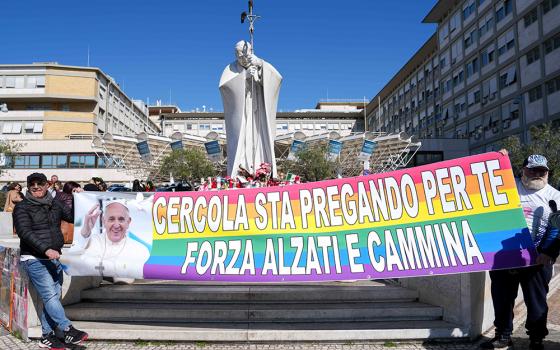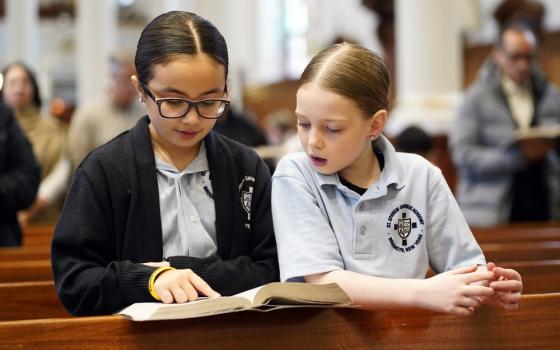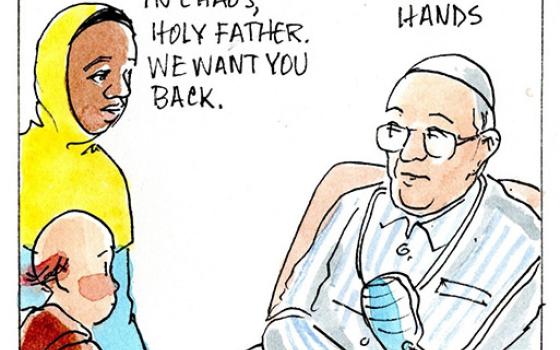A man who said his village was burned and relatives killed by Myanmar soldiers comforts his wife as Rohingya refugees arrive by a wooden boat from Myanmar in Shah Porir Dwip, Bangladesh, Oct. 1, 2017. (CNS photo/Damir Sagolj, Reuters)
Myanmar's military junta has committed crimes against humanity amid ongoing conflicts in the country following the coup last year, said a new report by the United Nations.
The U.N. Independent Investigative Mechanism for Myanmar said in its annual report Aug. 9 that sexual and gender-based crimes, including rape and other forms of sexual violence, and crimes against children have been perpetrated systematically by members of the security forces and armed groups.
Since starting operations three years ago, the IIMM has collected more than 3 million pieces of information from almost 200 sources; these include interview statements, documentation, videos, photographs, geospatial imagery and social media material, reported ucanews.com.
"There are ample indications that since the military seized power in February 2021, crimes have been committed in Myanmar on a scale and in a manner that constitutes a widespread and systematic attack against a civilian population, and the nature of potential criminality is also expanding," the report said.
It said this includes the execution of four pro-democracy activists July 25, after the report was prepared.
"Perpetrators of these crimes need to know that they cannot continue to act with impunity. We are collecting and preserving the evidence so that they will one day be held to account," said Nicholas Koumjian, head of the IIMM.
The report also revealed children in Myanmar have been tortured, conscripted and arbitrarily detained, including as proxies for their parents, ucanews.com reported.
"Crimes against women and children are among the gravest international crimes, but they are also historically underreported and underinvestigated," Koumjian said.
Advertisement
More than 2,100 people, including scores of children, have been killed and over 15,000 people have been detained by the junta since the Feb. 1, 2021, coup.
Especially since the coup, Catholic leaders in Myanmar have spoken out for human rights. Most recently, in June, the bishops expressed deep concern over the worsening situation in the country. They urged that much-needed humanitarian assistance be allowed to reach displaced people across the country.
Pope Francis repeatedly has called for prayers for Myanmar. During a 2017 visit to the country, the pope did not specifically mention the Rohingya, a Muslim minority, but he repeatedly insisted that the rights of each member of society and each ethnic group must be respected.
The latest IIMM report came just two weeks before the fifth-year commemoration of the military's crackdown on Rohingya Muslims in Rakhine state that has driven more than 740,000 people into neighboring Bangladesh.
"While the Rohingya consistently express their desire for a safe and dignified return to Myanmar, this will be very difficult to achieve unless there is accountability for the atrocities committed against them, including through prosecutions of the individuals most responsible for those crimes," Koumjian said.
The IIMM was created by the U.N. Human Rights Council in 2018 to collect and analyze evidence of the most serious international crimes and other violations of international law committed in Myanmar since 2011.
A U.N. fact-finding mission reported that "genocidal acts" carried out in Rakhine state by Myanmar's military in 2017, while the United States labeled it a "genocide" against the Rohingya.
International legal pressure continues to mount on the military leaders -- including Gen. Min Aung Hlaing, who led the coup -- to be tried at the International Criminal Court over rights abuse against peaceful protesters and civilians across the country, while the ongoing genocide case against Myanmar is pursued at the International Court of Justice.





